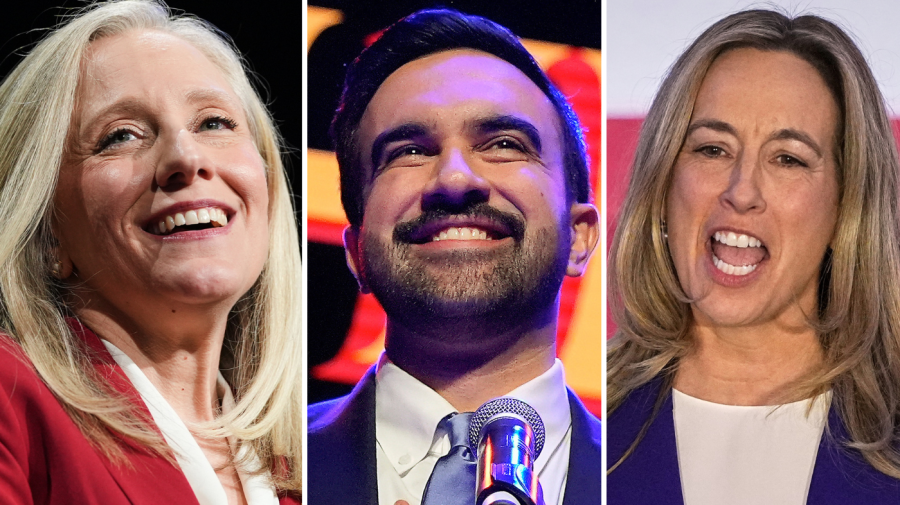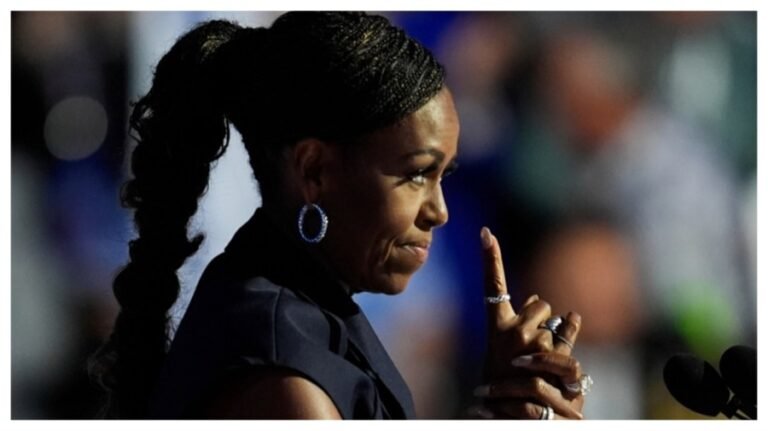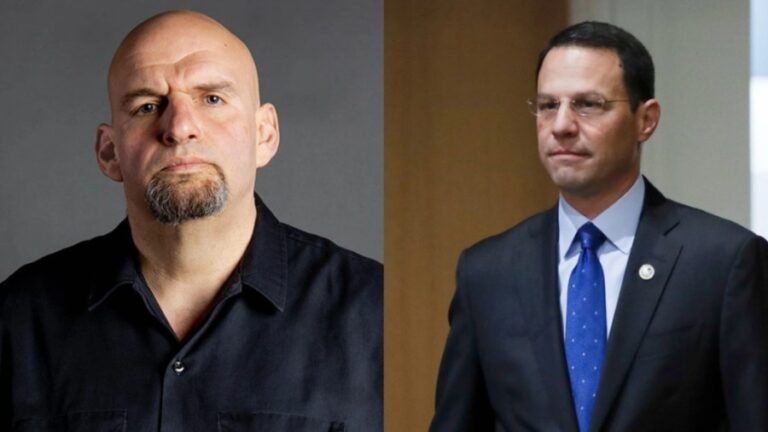
Tuesday night’s elections offered Democrats a much-needed shot in the arm while also underscoring competing visions within the party over how to move forward heading into next year.
Moderates won big in New Jersey and Virginia, electing Democrats Mikie Sherrill and Abigail Spanberger as governor in their respective states. Meanwhile, progressives had a massive night in New York City, where democratic socialist Zohran Mamdani easily fended off a challenge from former New York Gov. Andrew Cuomo.
The election results are proving to be a Rorschach test of sorts for Democrats in determining the best direction forward for their party as they seek to flip the House and make gains in the Senate next year.
The center-left Third Way released a memo Wednesday praising aspects of Mamdani’s campaign. But it warned that “Mamdani’s policy ideas, and the platform of the Democratic Socialists of America (DSA) which he has failed to repudiate, were drawn from the far left and are deeply unpopular in the red and purple places Democrats must win to retake Congress and the White House.”
The group’s comments come amid an ongoing debate within the party over how to make inroads with voters across the country after devastating losses in 2024. And while Tuesday’s resounding victory for Democrats will put to rest some of those questions at least for the time being, it’s unlikely to permanently quash them.
Mamdani has been a polarizing figure among Democrats since his stunning primary upset against Cuomo earlier this year. Senate Minority Leader Chuck Schumer (D-N.Y.) declined to endorse him in the general election, though he did congratulate Mamdani on his victory Tuesday, while House Minority Leader Hakeem Jeffries (D-N.Y.) waited until the last minute to throw his support behind him.
The leaders’ reluctance came after last year’s election saw Republicans make notable gains in reliably blue bastions like New Jersey and New York, with some in the party blaming the shift on polarizing social issues embraced by the left. Tuesday night’s elections suggest those states are trending back toward Democrats.
For some in the party, the main takeaway from Tuesday was that “the Democratic Party is a big tent party focused on two things — affordability and standing up to Donald Trump — and that’s a winning message,” according to Democratic strategist Jared Leopold, who has previously worked for the Democratic Governors Association (DGA).
Mamdani, Spanberger and Sherrill all emphasized the issue of affordability in their respective races, appealing to voters amid concerns over the state of the economy, rising costs and cuts to the federal workforce made by the Trump administration.
Democrats argue the party should use Tuesday’s success to come together as they gear up for the midterm elections, where they hope to flip both chambers of Congress.
“We shouldn’t pit Democrats against each other,” said Democratic strategist Rebecca Katz, whose firm Fight Agency worked on Mamdani’s campaign and served as an adviser to him.
“We have to build coalitions,” she said. “To win in 2026 and 2028, we need Zohran voters and Spanberger voters.”
Basil Smikle, former executive director of the New York State Democratic Party, also suggested that one of the takeaways from the election is that Democrats perform well when they stick closely to messaging and don’t get caught up in ideological purity tests.
Still, there were signs even on Tuesday of the internal tensions that have been roiling the party over the past year. CNN anchor Van Jones, a former special adviser in the Obama administration, criticized parts of Mamdani’s victory speech as divisive.
“I think he missed a chance tonight to open up and bring more people into the tent,” Jones said on CNN. He later added, “There are a lot of people trying to figure out, can I get on this train with him or not. Is he going to include me? Is he going to be more of a class warrior even in office?”
Though Mamdani focused his campaign heavily on economic issues and the cost of living in New York City, he also became a lightning rod among members of his own party for his stance on Israel and Palestine amid the Israel-Gaza conflict. The mayor-elect accused Israel of committing a “genocide” in Gaza” and faced accusations of antisemitism while grappling with Islamophobic attacks on the campaign trail. Mamdani has pledged to support the Jewish community and fight antisemitism as mayor.
That was a contrast to the campaigns run by Spanberger and Sherrill, both of whom played up their public service credentials and sought to avoid dwelling on hot-button policy issues like trans rights or the Israel-Hamas conflict.
Mamdani, on the other hand, leaned into his left-wing politics in his victory speech on Tuesday night, at one point quoting socialist leader Eugene Debs.
Republicans are already seeking to tie Mamdani to more moderate Democrats across the country. And some of those Democrats have made it clear they don’t want to be associated with him.
Rep. Tom Suozzi (D), who represents a battleground district in New York, has openly criticized Mamdani’s policies and endorsed Cuomo in the general election.
But progressives argue there is more common ground between the two wings of the party than is typically acknowledged.
“The idea of affordability is not progressive or moderate,” said Adam Green, co-founder of the Progressive Change Campaign Committee.
“It entails a Democratic Party willing to challenge the power of those who are making life unaffordable for Americans, which sometimes mean taking on billionaire donors, but it’s not a moderate versus progressive thing.”
And some Democrats who have clashed with their colleagues over the future of the party signaled they were willing to make peace following Tuesday’s victories — at least for a while.
David Hogg, who butted heads with Democratic National Committee (DNC) Chair Ken Martin earlier this year over whether to get involved in primary challenges as a sitting DNC officer, offered some praise to the national party leader for backing Mamdani when it wasn’t politically popular to do so. He also echoed the sentiment that Democrats has a unifying message that could help them defeat the GOP next year.
“If voters come to see us by the midterm as the party that stands up against special interests and stands for concrete policies to lower prices, and that’s what we’re laser-focused on, I think we’re set up very well to have a great midterm cycle,” Hogg told The Hill.


